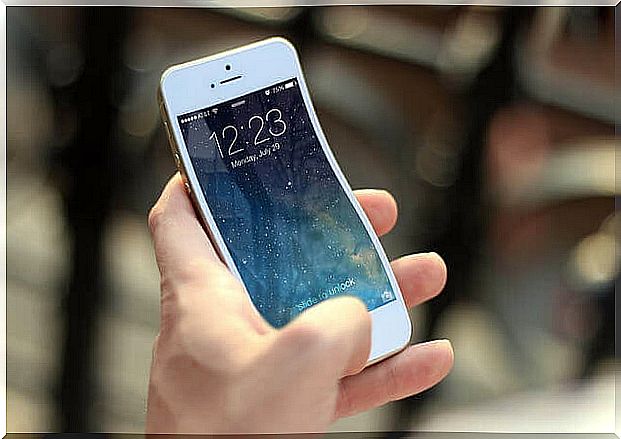Teenage Nomophobia

The term “nomophobia” refers to the irrational fear many teenagers feel when they don’t have their cell phone with them when they leave the house, or even have it, but without an internet connection.
Let it be clear that while teenagers are the most likely to have this phobia, no one is free to develop it. Let’s remember that nowadays we all live hyperconnected.
Without a doubt, the subject is quite worrying. That’s why specialists try to apply different therapies to combat this behavior that is so harmful to people.
How to recognize nomophobia?
If you’re a parent and realize that your teenager can’t stop looking at his cell phone or just the possibility of not having him around makes him anxious, or can’t get disconnected from social networks, it’s quite likely that he’s suffering of nomophobia.
The age group of individuals most affected by nomophobia is between 12 and 23 years old, approximately. This is the generation that was born with a cell phone in their hands and cannot even imagine a world without it.

Teenagers are often very vulnerable and the cell phone is like an extension of themselves as a person. Therefore, they are obsessed with the battery level dropping and they get annoyed at the thought that they can go without using their phone.
Symptoms of an Adolescent with Nomophobia
We recommend paying attention to the following behaviors of young people, to guide them whenever necessary. Therefore, it is necessary to know how to recognize the symptoms that may indicate that cell phone use has exceeded acceptable limits:
- He feels frustrated and even desperate if you punish him by limiting the use of the device.
- You can get angry when there are signal or internet connection failures.
- He can’t control himself if he runs out of battery or doesn’t find a place to recharge.
- Looks compulsively at the device to see if you have received messages, notifications from your social networks or calls.
- Do not even hang up the phone when lying down or sleep with it at your side.
- He is unable to take advantage of his free time without having his cell phone in hand.
Who are the most likely to suffer from nomophobia?
It is believed that up to 70% of young people are addicted to cell phone use. In addition, nomophobia occurs in adolescence because this is the stage where acceptance in groups of friends is sought, in order to identify or even belong to a group.
Experts say that girls are more likely to suffer from nomophobia than boys. Apparently, the emotional ties women establish with their friendships over the phone are very strong. In addition, they have a greater need for affection, which may explain why they are more likely to develop it.
The dangers of nomophobia
Teenagers with nomophobia make the phone the center of their lives. Psychologists warn that this evil causes them to develop so-called liquid relationships. I mean, young people express all their emotions and feelings through messages or emojis.
Human interaction becomes quite poor. There is no exchange of glances or human contact. Therefore, these teenagers are unable to maintain this affective relationship when they are in the presence of another person.
Consequences of cell phone addiction
By not being able to control this fear of being without a cell phone, adolescents can be exposed to many things, such as:
- The phobia of being without the phone, which can turn into an addiction that is difficult to control.
- Insomnia, as the constant anxiety of looking at the phone does not allow it to rest properly.
- State of permanent anxiety.
- Low academic performance.
- It affects your self-esteem.
- All activities unrelated to your phone become tedious.
- They develop problems to socialize and maintain affective relationships.

5 tips to fight nomophobia
Although talking to a specialist is the most appropriate in these cases, parents and children can work together to face telephone dependence:
- Stay away from the phone when you’re at home. Try leaving it in another room where it’s not easy to pick it up.
- Turn off the device at night and leave it outside your room.
- Try to leave the house without the phone, for short periods, to get used to the idea of not always taking it with you.
- Erase everything from your cell phone that keeps you attached to it. It could be a game or a social network, for example.
- Switch to a smaller data plan to be able to reduce your connected time.
- If it is very difficult for you to apply any of the above suggestions, it is recommended that you install a suspension application. For example, there is a very popular app, which for as long as you choose (10, 15, 30 or 60 minutes or more) not using your cell phone will cause a tree to grow. So, the more trees you accumulate in your virtual garden, the better.
Nomophobia is considered a disease of technology. The good news is, it can be cured. With persistence, patience and a lot of willpower, it can be overcome.
In general, health professionals recommend therapies to change behavior and successfully overcome this anxiety disorder.
The technology is very good and interesting, but it’s up to us to make good use of it, not to harm us or even create a dependency.









